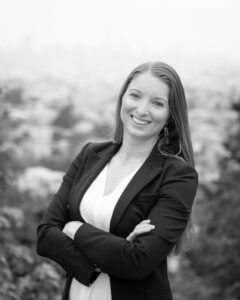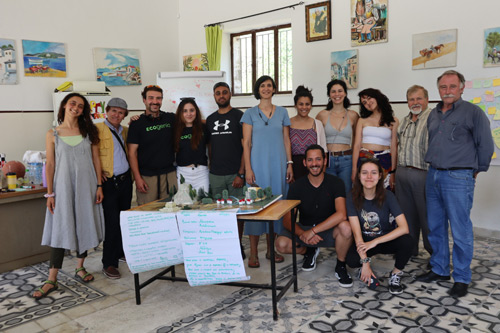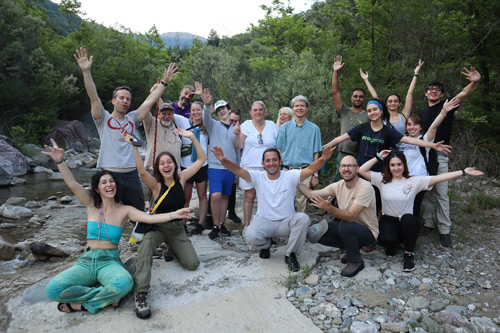A year of pilot programs means embracing Murphy’s Law.

Lia Papazoglou
Co-Founder
If you have ever been the person to test out something new – whether it be a new idea, product, business, etc., you are likely intimately familiar with Murphy’s Law, which explains that if there’s a possibility of something going wrong, it likely will, and especially at an inopportune time.
2022 was Ecogenia’s year to test our model for the first time. If you’ve been following us, you know that both of our projects were successful and made some great initial impact for us to continue to build on (you can learn more about our pilot projects here and here). But this reflection is not about our program impact – instead, I would like to reflect on everything that “went wrong”, but most importantly, what we learned through the piloting process – because when things don’t go as planned, it’s always a learning opportunity to improve for next time.
A pilot project for a nonprofit has many challenges at the outset. One of the biggest, and at times most daunting challenges is with regards to funding. Many donors are only interested and/or capable of supporting organizations with demonstrated impact – so identifying a funding source for an untested and innovative idea in the nonprofit space is quite challenging. Luckily, we were introduced to some open-minded people and institutions who believed in our team and were willing to invest in our work to execute this innovative idea for the first time in Greece. I cannot state emphatically enough that without the support from these incredible people and foundations, we simply would not have been able to accomplish our pilot work. Thank you again to the Helidoni Foundation, Good Moves Initiative, RayCap, the Latsis Foundation, and numerous individual donors for investing in us at this critical stage.
Moving from our funding phase to pilot program execution, our team navigated a wide range of challenges, from cohort recruitment (how do you recruit people for something that’s never been done before?), language and cultural barriers, COVID policy changes, CSO/nonprofit skeptics, inflation and supply chain issues, etc.
And then there were the day-to-day challenges. Our program teams out in the field were troubleshooting daily – navigating unknown territory (literally and figuratively!) as they were all doing a job that has never been done before in Greece. Our team learned by doing – being out in the field with the cohort members, working alongside them to understand their concerns/challenges/opportunities while executing their service projects.

In Dorida, as an example, our team did everything from coaching the cohort team on how to manage their co-housing living environment, learning how to mitigate peer conflict, navigating complicated and ancient trail networks to create feasible daily work plans for cohort members, or adapting work plans based on severe mountain weather patterns – our team did it all. In Chania, the team had other challenges, ranging from navigating ever-changing COVID policies (especially those relating to working with children), competing with other after-school programs to ensure student enrollment for our program, etc.
What is amazing to me is that despite all of the challenges and pressure we faced during our pilot year, our team excelled. We had each other’s backs, cheered each other on, jumped in where needed, and remained positive throughout the process. The constant troubleshooting and pivoting also proved to be invaluable lessons for our team which will be directly applied to how we plan, manage, and execute our work moving forward. Additionally, our team worked hard to cultivate strong relationships within our host communities to ensure these are long-term relationships built on trust and mutual goal setting. We were lucky to have them by our side throughout all stages of the program.
As a co-founder, I am so proud of our team’s ability to be thoughtful and dynamic leaders under these ever-changing circumstances. In many ways, our team has shown that we can thrive under pressure. While I hope we do not have to test this further in 2023, I feel reassured knowing that our team is more than capable of taking our work to the next level and address whatever it is our 2nd year of piloting.
In 2023, we plan to do a second iteration of our ecotourism in Dorida from May-July. The second half of our year is still in development, with two exciting possibilities laid out before us. We invite you to stay tuned, join our newsletter mailing list and/or follow us on social media, to stay up to date regarding what we have in store this year. Whatever lies ahead, rest assured, our team is up for the challenge! And we now have an army of cohort alumni behind us.

